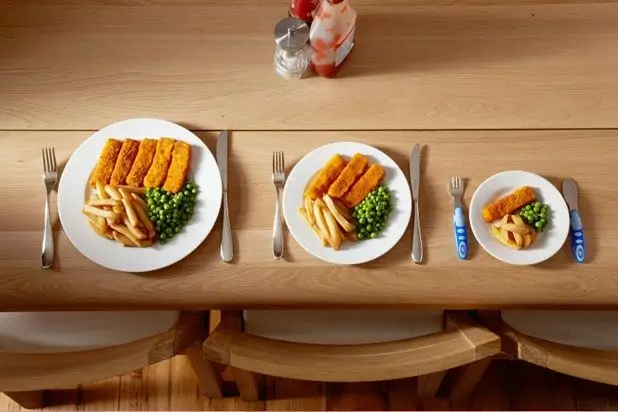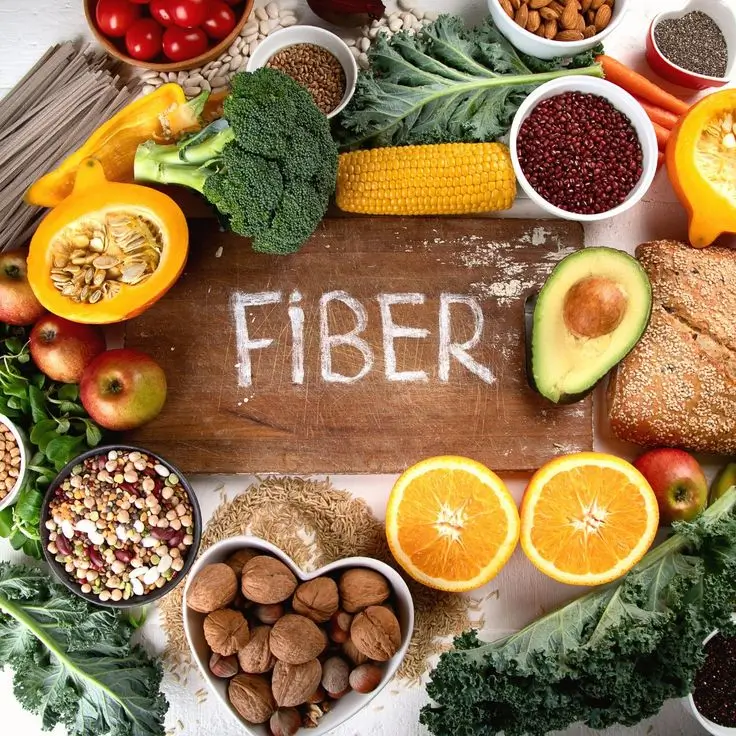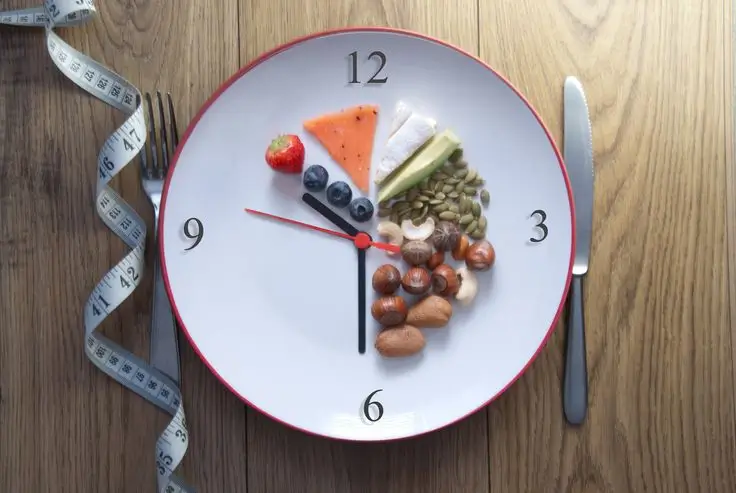Losing weight doesn’t always have to mean cutting out all the foods you love. Many people are realizing that the key to weight loss is not through restrictive dieting, but through making smarter lifestyle choices.
If you’ve felt frustrated with the constant cycle of diets that don’t work long term, you’re not alone. You can lose weight without obsessing over every meal. By shifting your mindset and adopting healthy habits, shedding those extra pounds becomes effortless.
1. Focus on Mindful Eating
Eating mindfully means being present while you eat, noticing every bite, and savoring the flavors. It’s not just about what you eat—it’s about how you eat. When you slow down and really taste your food, you naturally eat less and feel more satisfied.
Taking the time to appreciate your meal helps your brain catch up with your stomach, giving you time to realize when you’re full. This habit reduces overeating and prevents you from mindlessly snacking throughout the day.
If you’re used to eating quickly, try to set aside time to truly enjoy each bite. No phones, no distractions, just you and your food.

2. Drink Water Before Every Meal
Drinking a glass of water before meals can help you feel full and prevent overeating. Water takes up space in your stomach, making it easier to eat less during a meal. It also prevents confusion between thirst and hunger.
Drinking water also improves digestion and helps your body process food more effectively. Staying hydrated supports your metabolism, which can boost weight loss efforts without the need for dieting.
Keep a bottle of water by your side throughout the day. It’s a simple habit that can make a big difference over time.

3. Prioritize Sleep Like It’s Your Job
Sleep plays a huge role in weight management. When you don’t get enough sleep, your hormones that control hunger are thrown off, and you end up craving unhealthy foods. This leads to overeating and fat storage, especially around your belly.
When you make sleep a priority, your body has the time it needs to repair itself and balance those hormones. The result is less stress, fewer cravings, and a more efficient metabolism. Try aiming for 7 to 9 hours each night.
Creating a calming bedtime routine can help improve your sleep quality. Limit screen time and keep your room cool and dark for the best rest.

4. Get Moving Without “Working Out”
Not a fan of the gym? You don’t need to work out to lose weight. The key is staying active in a way that feels natural. Walking, cleaning, dancing, or even playing with your pets all count as movement and burn calories.
Incorporating more activity into your daily routine doesn’t require a lot of time or energy. It’s about finding ways to move that are enjoyable and part of your everyday life.
Look for opportunities to add more movement, like parking further away, taking the stairs, or walking to a nearby store. These small changes add up over time.

5. Use Smaller Plates and Bowls
One of the easiest tricks to eating less is using smaller plates and bowls. When you serve your meals on smaller dishes, your brain perceives it as a full portion, even though it’s less food. This helps you eat less while still feeling satisfied.
Smaller plates can trick your mind into thinking you’re eating more, which makes portion control easier without any effort. The same applies to bowls and even cups—smaller vessels naturally guide you to eat less.
By simply downsizing your dishware, you can cut back on calories without feeling deprived.

6. Snack Smarter, Not Less
Snacking isn’t the enemy—choosing the right snacks is. Rather than cutting out snacks entirely, try swapping out unhealthy choices for more nutritious options. Healthy snacks like nuts, fruit, or yogurt keep you satisfied without packing on the pounds.
The key is to make sure your snacks are nutrient-dense, offering a balance of protein, fiber, and healthy fats. These will keep you full and help stabilize your blood sugar levels throughout the day.
Rather than mindlessly munching on chips or sweets, keep healthy snacks in easy-to-reach spots. It’ll make it much easier to make better choices when hunger strikes.

7. Keep Healthy Food Visible
Out of sight, out of mind—especially when it comes to food. The easier it is to grab something healthy, the more likely you are to eat it. Make sure your fridge and pantry are stocked with fresh, nutritious options that are easy to access.
When healthy foods are front and center, they become your go-to choices. On the other hand, if junk food is sitting out in clear sight, it’s much harder to resist temptation.
Place fruit in a visible bowl or keep chopped veggies in clear containers. This simple shift will guide you toward healthier eating habits.

8. Practice Stress Reduction Daily
Stress can have a serious impact on your weight. When you’re stressed, your body produces cortisol, a hormone that increases hunger and promotes fat storage, especially around your belly. Managing stress is key to avoiding these effects.
Taking time each day for stress-relieving activities like deep breathing, yoga, or meditation can help you keep your cortisol levels in check. Reducing stress doesn’t just benefit your mental health—it helps with weight loss too.
Whether it’s a short walk outside or a few minutes of stretching, find a way to calm your mind each day to support your weight loss journey.

9. Add Protein to Every Meal
Protein is an essential nutrient that keeps you feeling fuller for longer. When you eat more protein, you’re less likely to snack throughout the day or overeat at meals. It also helps you build and maintain lean muscle, which naturally boosts your metabolism.
Adding protein to every meal doesn’t mean eating meat at every meal. Eggs, beans, nuts, and seeds are all excellent sources of protein that can help keep you full and energized.
Make protein-rich foods a regular part of your meals, whether it’s through a breakfast smoothie or a handful of nuts as a snack.

10. Make Friends with Fiber
Fiber is another nutrient that can help you feel full and satisfied. It slows digestion, keeping you full longer and helping to regulate blood sugar levels. Plus, it supports gut health, which is crucial for overall wellness.
Incorporating more fiber into your diet is easy—fruits, vegetables, whole grains, legumes, and seeds are all fiber-rich options. The more colorful and diverse your plate, the more fiber you’re likely getting.
Just remember to drink plenty of water as you increase fiber in your diet to help it move smoothly through your system.

11. Stop Eating When You’re 80% Full
How many times have you eaten a full meal and felt stuffed afterward? In Japan, there’s a concept called “Hara Hachi Bu,” which means eating until you’re 80% full. This practice encourages portion control without feeling deprived.
The idea is simple: stop eating when you’re no longer hungry—not when you’re full. Your body needs about 20 minutes to signal fullness, so slowing down gives it time to catch up.
Try eating more slowly and checking in with yourself halfway through your meal. You might find that you feel satisfied with a smaller portion.

12. Chew More, Eat Less
Chewing your food thoroughly helps you digest better and feel fuller faster. Most people chew their food only a few times before swallowing, but increasing the number of chews can make a big difference.
The more you chew, the longer it takes for you to eat, which gives your body time to send fullness signals to your brain. This can lead to eating less without even trying.
Make it a habit to chew each bite at least 20–30 times, and notice how much more satisfied you feel afterward.

13. Set the Mood at Mealtime
The environment in which you eat can affect how much you eat. When you’re distracted—watching TV or eating while working—you’re more likely to overeat because you’re not paying attention to your body’s signals.
Create a peaceful mealtime atmosphere. Sit down at a table, put away distractions, and take the time to enjoy your food. You’ll naturally eat slower and feel more satisfied with less.
Set the stage for mindful eating by dimming the lights, playing calming music, or even lighting a candle. It makes a world of difference.

14. Walk After Meals
Walking after meals helps your body digest food more efficiently and can prevent that post-meal slump. A quick 10-15 minute walk has been shown to improve digestion, regulate blood sugar, and help burn a few extra calories.
You don’t need to walk for hours—just a short stroll around the block or around your house will do the trick. It’s a simple way to support your body without feeling like you’re working out.
Try to make it a habit after each meal, and you’ll notice the positive effects on your digestion and energy levels.

15. Try Intermittent Fasting (Gently)
Intermittent fasting isn’t about restricting what you eat—it’s about when you eat. With methods like the 16:8 approach, you eat during an 8-hour window and fast for the remaining 16 hours. It gives your body a chance to reset and digest.
While intermittent fasting isn’t for everyone, it can be a useful tool for some. Start with a shorter fasting window, like 12 hours, and gradually build up if it feels right for you.
It’s a gentle approach to regulating when you eat, and it can support weight loss naturally.

16. Keep a Food and Mood Journal
Writing down what you eat and how you feel can provide valuable insights into your eating habits. You may notice patterns, like eating more when stressed or feeling sluggish after certain foods.
Tracking your meals and moods helps you make more mindful choices and understand your body better. It can also keep you accountable and celebrate small victories along the way.
Consider keeping a journal or using an app to track your food and emotions for a week. You may uncover some surprising connections that help you improve your habits.

17. Surround Yourself with Support
Having support makes all the difference when it comes to weight loss. Whether it’s a friend, family member, or online group, being accountable and having people cheer you on can keep you motivated.
You don’t have to do this alone. Share your goals, celebrate milestones, and find healthy activities to do together. A strong support system can help turn your healthy habits into long-term success.
Surround yourself with positivity, and you’ll feel encouraged to keep going on your journey.

Final Thoughts
Losing weight isn’t about drastic dieting—it’s about making smarter choices every day. From eating mindfully to staying active in fun ways, small changes can lead to big results.
Focus on progress, not perfection. Adopting a few of these ideas at a time can make weight loss feel effortless, and it’s more sustainable in the long run. Ready to start? Let’s make these healthy habits part of your lifestyle.










